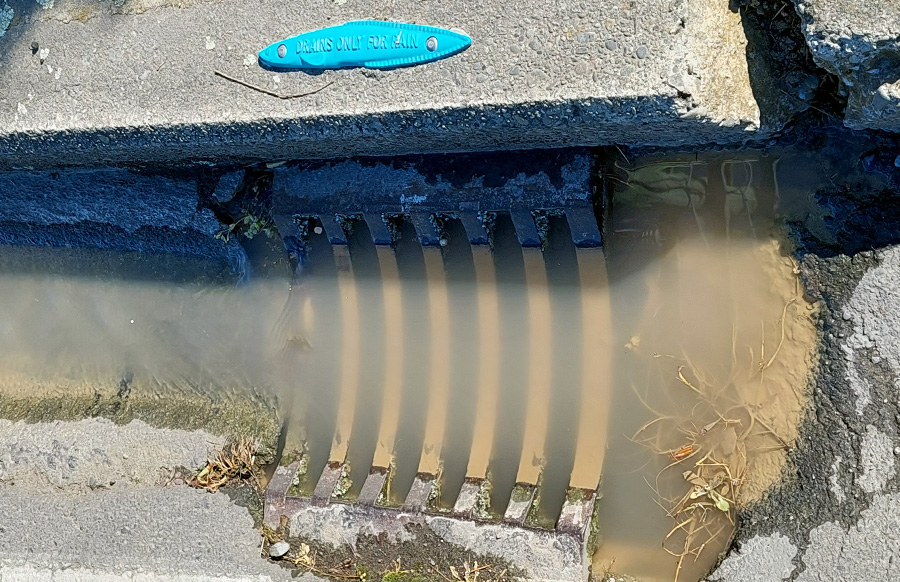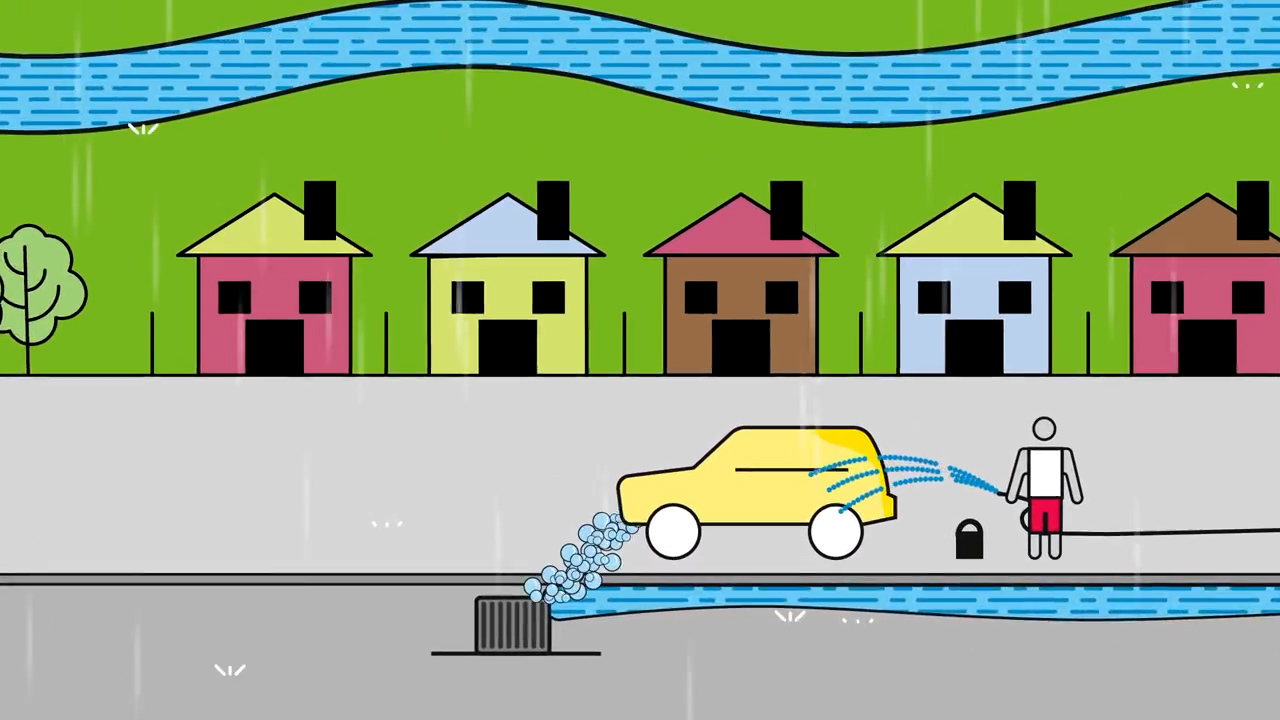Contamination of stormwater
Contamination of our stormwater comes from common pollutants like litter, animal poo, sawdust, spills, soil, and chemicals from things like washing cars on our driveways and rinsing paintbrushes down the stormwater drain.
Ultimately, these contaminants end up washing into our rivers and waterways where they kill fish, insects, and plant life – ruining habitats. A polluted stream may never fully recover.
Even a very small amount of a pollutant or just one accidental chemical spill can have a huge impact on a stream’s health.
Recorded contaminants in the Christchurch area
In the Christchurch area, it's estimated that each year thousands of tonnes of contaminants enter the Ōpāwaho/Heathcote, Ōtākaro/Avon, Puharakekenui/Styx and Huritini/Halswell rivers.
The estimated amount of discharges into our rivers over a one-year period are:
- 6,600 tonnes of Total Suspended Solids (sediment)
- 31 tonnes of zinc
- 4.5 tonnes of copper.
These contaminants cause major problems for our rivers.
For example, sediment running into waterways (such as from piles of dirt left on driveways) makes it hard for fish to see, interact and feed to survive within their aquatic habitat. It also clogs their gills, making breathing difficult. It can smother a streambed, destroying the places where fish and smaller aquatic creatures live and breed.
Other key contaminants include E. coli (from the poo of humans, animals, and birds), and phosphorous and nitrogen from fertiliser use.
Litter is another key contaminant that degrades our waterways. In 2023, the Mother Of All Clean Ups event saw 2,370kgs of small and large rubbish items pulled from in and around Christchurch’s waterways in one day.
Report It
Report sediment, dirt and chemical spills near stormwater drains before they get to our rivers and sea:
- If you see sediment coming from building sites during rain events, or sediment tracked onto the road, take photos and report it via the Snap Send Solve app.
- Report pollution to our Pollution Hotline 0800 765 588.


